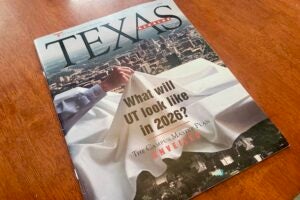The Texas Education Agency recently released school and district ratings for the first time since 2019, and there has been some improvement, but a longstanding trend persists. Many schools in the state’s poorest communities struggle to meet achievement targets.
This year, almost 8,500 campuses were evaluated, and more than 6,000 received either an “A” or a “B” for student achievement outcomes and growth. But that is where the good news ends. Approximately 1,600 schools received a “C,” and more than 550 schools would have been rated as a “D” or an “F,” but the TEA opted to classify those schools as “Not Rated.”
Here is the problem: Almost 90% of schools not rated are in the state’s poorest communities. None is in the most affluent communities.
Persistently struggling schools represent a decades-long problem that reflects two policy failures: the failure to adequately fund schools in poorer communities, and the failure to create a teacher workforce to fill each school with experienced, high-quality teachers. If the state were rated for addressing these two failures, Texas would be rated “F” relative to other states. Texas should do better.
The state’s antiquated finance system ranks among the bottom five for providing adequate resources to high-poverty school districts. Despite multiple cases reaching the Supreme Court of Texas, including several rulings in favor of plaintiff school districts, our lawmakers have never created a system that puts all students on equal footing.
In 2019, House Bill 3 included $6.5 billion in additional education spending. Since then, the state has failed to make continued efforts to improve school funding. The state’s complicated recapture system takes money out of some high-poverty school districts such as those in Houston, Dallas and Austin, where many persistently struggling schools operate. Federal funds helped districts invest in capital projects, learning interventions, and after-school community-based programs. Unfortunately, these funds are drying up, and districts will soon need state funding to continue their COVID recovery.
Texas is also struggling to recruit and prepare enough university-trained teachers, which may be due to the state’s large “teacher wage penalty,” which is nearly 22%. This penalty indicates how teachers’ salaries compare with their college graduate peers in the non-teaching sector. Lower salaries disproportionality affect high-poverty campuses that frequently struggle to recruit and retain teachers.
High-poverty districts are more likely to employ inexperienced and alternatively certified teachers. A recent study using data found that Texas students received an additional 2.2 and 2.4 months of learning in ninth grade English language arts and math when taught by university-certified teachers rather than alternatively certified teachers. The study also found alternatively certified teachers exited their jobs sooner, which destabilized campuses and increased costs needed to replace and retrain teachers.
Special education is an area that highlights the state’s decades-long failure to adequately fund education and ensure quality teachers are available. The state has been investigated and cited for violating federal laws for cutting special education funding while simultaneously reporting a special education teacher shortage for more than 20 years.
All of this combined should make Texans ask why state leaders have not addressed special education, school finance and teacher quality issues given the scope of the problem. Rather, many state leaders have focused on fighting culture wars – enacting policies to limit teaching on race and LGBTQ bathroom bills.
The state’s broader failures in rural communities have also contributed to a sense among many teachers that schools are unsafe. The consequences of these policy failures may push even more teachers out of classrooms, particularly in the highest-need schools, only adding to an already bad problem.
Texans cannot accept this. Fixing the state’s system of school finance and improving the supply of high-quality teachers will not be easy and will require significant investments. The upcoming elections and 2023 legislative session provide important opportunities to vote and advocate for change.
David DeMatthews is an associate professor in the Department of Educational Leadership and Policy at The University of Texas at Austin.
David S. Knight is an assistant professor of education finance and policy at the University of Washington.
A version of this op-ed appeared in the San Antonio Express News, Austin American-Statesman and the Waco Tribune Herald.




